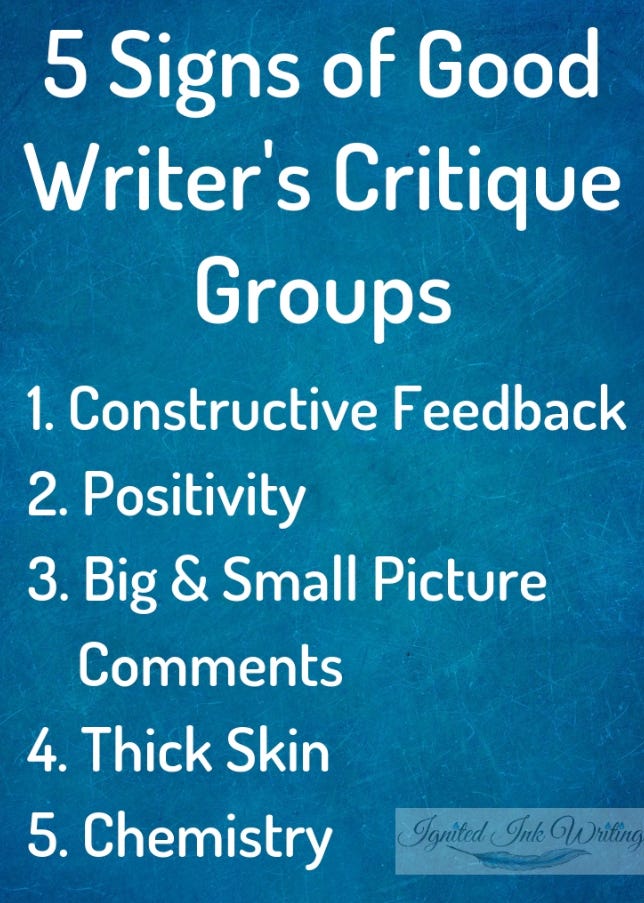Writer’s Groups: Positives—Why to Hook Up with One
Issue #30, 2 of 4 on Writer's Groups
Get tight with others who write
Let’s jump right into the positives of writer’s groups (which we’ll intermittently call WG in these issues, lest I be accused of ingemination—or repetition).
Writer’s Groups: Pro - Overall
Claire McMurray in her scholarly analysis in Praxis concludes that “…writing groups are a valuable way for writers to improve their writing, receive feedback, gain accountability, and increase their motivation.”
In a paper on Writing Groups for Researchgate, Sarah Haas cites studies which indicate that those in WG “…write more…” produce “…higher quality text…” and that members note “…decreasing anxiety” about the writing process.
And let’s not forget networking opportunities.
I got introduced to my first editor (resulting in my Scary Stories books) via a writer friend at church. The moral? Be connected with other writers. Networking can be like magic, wherever it might happen…and your writer’s group is the first, most logical place to look.
List of Positives on Writing Groups
1) We’re mere mortals and need feedback; without other eyes, I find I miss everything from glaring plot holes to silly grammar mistakes.
2) Find direction moving forward in the writing process.
3) Get emotional support from other creatives who empathize with what you’re experiencing.
4) Discover networking opportunities.
5) Get organized and receive accountability regarding writing goals.
Of course, the benefits of WG are directly related to how effective each group is.
In “Why You Need to Recognize a Good or Bad Critique Group,” Ignited Ink offers up the following qualities as signs that your current group (or a group you’re vetting) passes muster.
On to our question (full disclosure: this is NOT one I was actually asked; it’s a hypothetical query I crafted to go along with the topic of WG).
Q) How can I keep my critique group positive and functional?
A) Sometimes you can’t. The actions of an entire group are out of your control. However, you can individually model good-critique group etiquette.
· Always start your critiques with a positive, then segue gently to suggestions. i.e. “I just love your dialogue. It’s fun and realistic. But I was confused about…”
· Make sure your suggestions (for manuscript revision) are just that: suggestions, never demands. Let the writer know they can take what they want and discard the rest, ’cause it’s their story.
· Beware of “piling on;” be gentle when agreeing with a previous criticism, i.e.: “Bob has a point about the description. Just a little added detail on the setting and the weather would make me see and feel it.”
· When receiving critiques, never defend yourself. Simply listen, then be gracious—without committing yourself to making any changes—by saying: “I’ll definitely consider that!”
· Above all, be kind. We are all sensitive, to varying degrees, about our creations. Respect, encourage and support even the very least writer in your group so they can be the best they can.
Time to close. Time to close. Time to close.
(Whoops. I might have inadvertently given a clue on the vocabulary word for this issue.)
What is ingemination?
(Did you get it? Did you get it?)
Action Plan
Please patronize the talented Unsplash photographers who illustrate these pages!
Next issue
#31) Writer Groups: Negatives—When to Stay Away or Jump Ship. Writer’s Groups 3 of 4. See you in two weeks!
Craig















